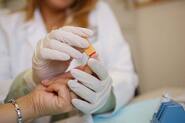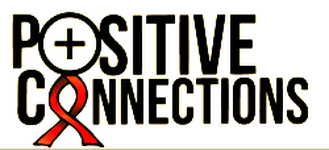
HIV/AIDS
Q. What is HIV?
A. HIV (Human Immunodeficiency Virus) is the virus that causes AIDS. HIV affects the immune system, which gives the body the ability to fight off sickness. When people have sex or share needles for drug use with someone who is infected with HIV, they may be exposed to HIV. Some of these exposed people become infected. Infected people stay infected for life and can pass HIV on to others. No cure for HIV infection exists at this time.
Q. What is AIDS?
A. AIDS stands for Acquired Immune Deficiency Syndrome. When HIV damages the immune system, infected people cannot fight off illnesses and can get rare diseases (called opportunistic infections) that healthy people don't get. When HIV-infected people get one of these rare diseases or become very ill, or if their immune system becomes too weak, then they have AIDS. Although many opportunistic infections are treatable, little can be done to repair a damaged immune system, and there is no cure for AIDS.
Q. How do people get HIV?
A. HIV is carried in some bodily fluids and can be transmitted whenever these fluids are exchanged: Blood, semen, vaginal fluids, breast milk, and spinal fluid can all carry HIV. HIV is usually transmitted through unprotected oral, anal, or vaginal sex or by sharing needles for injection drug use. HIV can also be passed from mother to child during childbirth or breast feeding.
Q. Is it safe to be around someone with HIV?
A. Yes! HIV is only transmitted through the exchange of the fluids listed above. HIV cannot be transmitted by casual contact, and it is not carried in saliva, urine or sweat. You can hug, kiss, and share food or restrooms with somebody with HIV without risking transmission.
Q. How can I avoid HIV infection?
A. The best way to avoid being infected through sex is to not have sex at all. If you decide to have sex, you can protect yourself by using a barrier, such as a latex or polyurethane condom unless you are certain that you and your sex partner are not infected.
The best way to avoid being infected because of drug use it to not use drugs at all. People who use needles for drug use can prevent HIV infection by not sharing needles or other "works" which may have blood in or on them.
Q. What are the symptoms of HIV?
A. Often, HIV has no symptoms. You cannot tell if someone is HIV-positive just by looking. When a person first becomes infected with HIV, they may experience some flu-like symptoms during the first month, such as fever, muscle soreness, diarrhea, and swollen lymph nodes. This is called primary or acute HIV infection. These symptoms typically disappear after a short time, though HIV continues to multiply and do damage to the immune system. Untreated, HIV will progress into AIDS and make the body susceptible to opportunistic infections, many of which have their own acute symptoms.
Q. What is HIV?
A. HIV (Human Immunodeficiency Virus) is the virus that causes AIDS. HIV affects the immune system, which gives the body the ability to fight off sickness. When people have sex or share needles for drug use with someone who is infected with HIV, they may be exposed to HIV. Some of these exposed people become infected. Infected people stay infected for life and can pass HIV on to others. No cure for HIV infection exists at this time.
Q. What is AIDS?
A. AIDS stands for Acquired Immune Deficiency Syndrome. When HIV damages the immune system, infected people cannot fight off illnesses and can get rare diseases (called opportunistic infections) that healthy people don't get. When HIV-infected people get one of these rare diseases or become very ill, or if their immune system becomes too weak, then they have AIDS. Although many opportunistic infections are treatable, little can be done to repair a damaged immune system, and there is no cure for AIDS.
Q. How do people get HIV?
A. HIV is carried in some bodily fluids and can be transmitted whenever these fluids are exchanged: Blood, semen, vaginal fluids, breast milk, and spinal fluid can all carry HIV. HIV is usually transmitted through unprotected oral, anal, or vaginal sex or by sharing needles for injection drug use. HIV can also be passed from mother to child during childbirth or breast feeding.
Q. Is it safe to be around someone with HIV?
A. Yes! HIV is only transmitted through the exchange of the fluids listed above. HIV cannot be transmitted by casual contact, and it is not carried in saliva, urine or sweat. You can hug, kiss, and share food or restrooms with somebody with HIV without risking transmission.
Q. How can I avoid HIV infection?
A. The best way to avoid being infected through sex is to not have sex at all. If you decide to have sex, you can protect yourself by using a barrier, such as a latex or polyurethane condom unless you are certain that you and your sex partner are not infected.
The best way to avoid being infected because of drug use it to not use drugs at all. People who use needles for drug use can prevent HIV infection by not sharing needles or other "works" which may have blood in or on them.
Q. What are the symptoms of HIV?
A. Often, HIV has no symptoms. You cannot tell if someone is HIV-positive just by looking. When a person first becomes infected with HIV, they may experience some flu-like symptoms during the first month, such as fever, muscle soreness, diarrhea, and swollen lymph nodes. This is called primary or acute HIV infection. These symptoms typically disappear after a short time, though HIV continues to multiply and do damage to the immune system. Untreated, HIV will progress into AIDS and make the body susceptible to opportunistic infections, many of which have their own acute symptoms.

